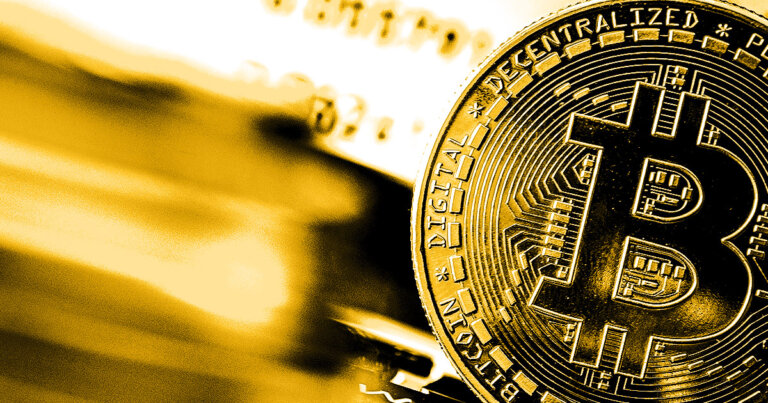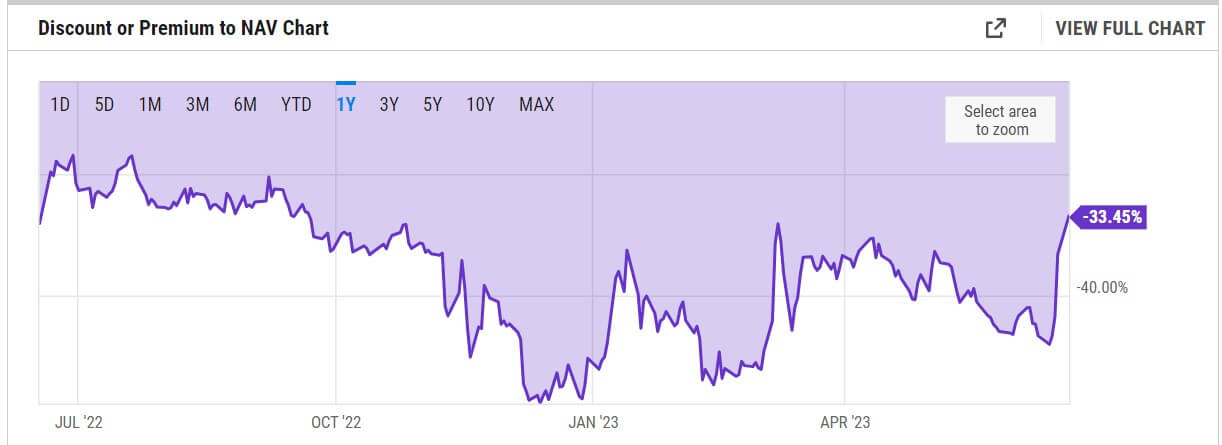 GBTC discount narrows to 33% amid buyout rumors, revived spot Bitcoin ETF interest
GBTC discount narrows to 33% amid buyout rumors, revived spot Bitcoin ETF interest GBTC discount narrows to 33% amid buyout rumors, revived spot Bitcoin ETF interest
BlackRock's Bitcoin ETF applications has renewed optimism surrounding Grayscale's GBTC shares.

Cover art/illustration via CryptoSlate. Image includes combined content which may include AI-generated content.
Grayscale’s Bitcoin Trust (GBTC) shares rose 11% on June 20 to $16.85 and narrowed the discount to its net asset value (NAV) to 33.45%—its highest point since the beginning of the year, according to YCharts data.

Wu Blockchain, citing CryptoQuant data, reported that the increase coincided with a record-high trading volume of $10.24 million—the highest since November 22, 2022.
On the year-to-date metrics, a CryptoSlate Insight reported that GBTC has increased by 96%.
BlackRock’s ETF application fuels interest in GBTC
The renewed optimism surrounding GBTC shares has been linked to BlackRock’s application for a Bitcoin spot ETF. Wu pointed out that news of BlackRock’s application has helped GBTC shares to rally by more than 25%.
Unconfirmed rumors also suggested that Fidelity Investment was considering a buyout of Grayscale. Fidelity is the world’s third-largest asset manager, with $4.24 trillion under management.
A partner at Syz Capital, Richard Byworth, stated that a Fidelity offer for GBTC would “likely see the discount correct to zero rapidly.”
Grayscale’s effort to convert GBTC into an ETF
Like several other companies, Grayscale has filed for the establishment of a spot Bitcoin ETF for several years but was repeatedly turned down by the U.S. Securities and Exchange Commission.
According to the Commission, these applications failed because they could not comply with certain sections of the Securities Exchange Act and were not designed to prevent fraud and market manipulation or protect investors and public interests.
However, these repeated rejections led Grayscale to file a lawsuit against the SEC, arguing that a spot ETF was not different from a futures ETF—which the SEC had previously approved. According to Grayscale, both spot and futures ETFs rely on Bitcoin’s price and thus carry the same levels of risk regardless of where they are traded.

















































































































